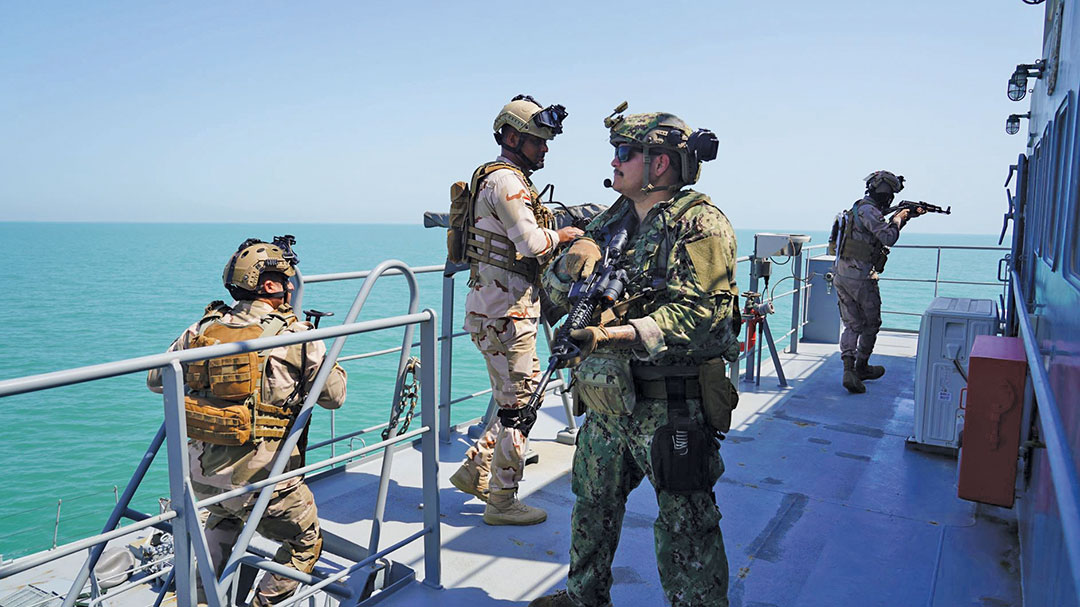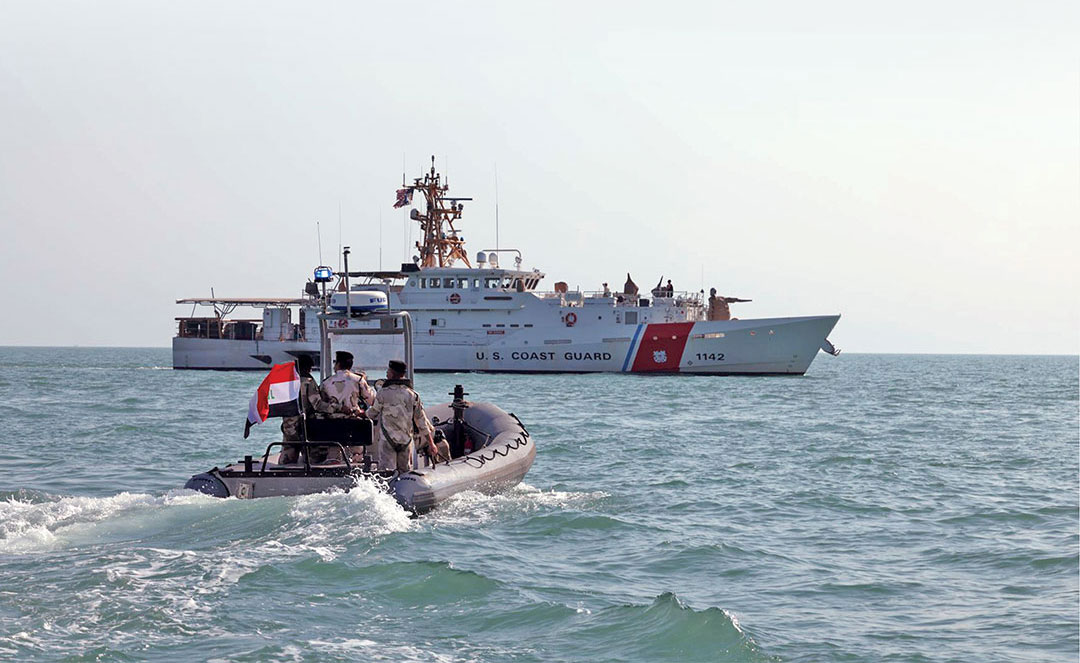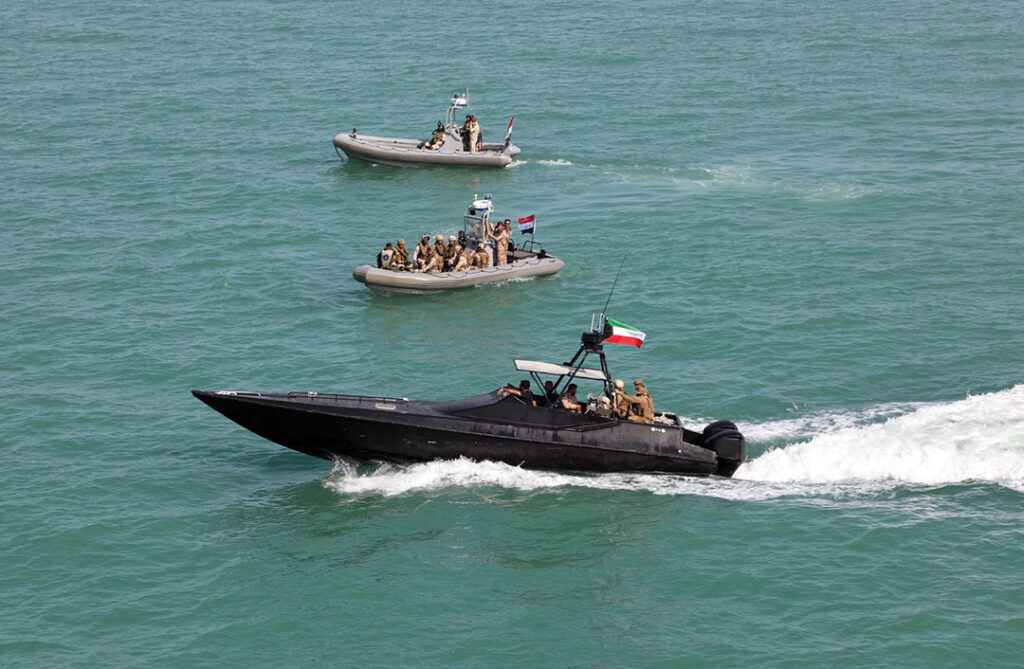Unipath Staff
Iraqi, Kuwaiti and U.S. Forces Duplicate Real-World Threats During Maritime Security Training
Maritime forces from Iraq, Kuwait and the United States completed a two-day trilateral exercise focusing on counterpiracy and maritime security in the Northern Arabian Gulf.
The October 2023 exercise featured ships from all three countries. The Kuwait Coast Guard and Navy supplied patrol boats, a speedboat, a supply ship and a helicopter, and conducted joint patrols with two Iraqi patrol boats and the U.S. Coast Guard fast response cutters Robert Goldman and Clarence Sutphin Jr.
The training missions focused on visit, board, search, and seizure (VBSS) procedures, small boat operations, fisherman safety and communication equipment checks, among other maritime security concerns.
The Kuwait exercise built upon previous VBSS engagement training by introducing simulated target vessels, increasing VBSS drill repetitions and conducting VBSS exercises aboard Kuwaiti ships.
The trilateral exercise began six years ago as a way for the three partners to address maritime security cooperatively but has grown in complexity to focus more tightly on regional needs.
“Part of what makes this exercise valuable is the ability to take advantage of the wide breadth of knowledge, experience and VBSS tactics together,” said Lt. Hunter Stowes, commanding officer of one of the U.S. Coast Guard boats.

“Exercises like this continue to strengthen our regional partnerships, maintain and improve upon our ability to integrate seamlessly with our allies, and improve our skill sets in the maritime domain.” The Kuwaitis emphasized the need for cooperation in policing the northern part of the gulf near their territorial waters.
“Our exercises, working alongside U.S. 5th Fleet, Kuwait and Iraq Navies, ensure the security and safety of fishermen in the international waters of the Northern Arabian Gulf,” said
Maj. Gen. Talal Al Munes, commander of Kuwait Coast Guard.
Iraqi Maj. Gen. Laith Abdul Sattar Abdul Jabbar, commander of the Um Qaser Naval Base, viewed multinational cooperation as
critical to his country’s defense.
“The aim of this exercise is to enhance skills, develop training capabilities, maintain preparedness and readiness, exchange experiences between the participating forces, and strengthen international relations within the framework of cooperation and coordination for joint action,” he said.

Vice Adm. Brad Cooper, then-commander of U.S. Naval Forces Central Command/U.S. 5th Fleet, since promoted to deputy commander of U.S. Central Command, said the exercises demonstrate the flexibility of regional forces to adapt to changing environments.
“With this latest iteration, we are continuing to advance interoperability at sea,” Adm. Cooper said. “It’s an honor to continue this series of exercises with our Kuwaiti and Iraqi friends. This trilateral exercise proves once
again that when we work together, we achieve so much more.”
U.S. Naval Forces Central Command/U.S. 5th Fleet’s area of operations encompasses about 2.5 million square miles of water, including the critical shipping chokepoints Strait of Hormuz, the Suez Canal and the Bab el-Mandeb.

